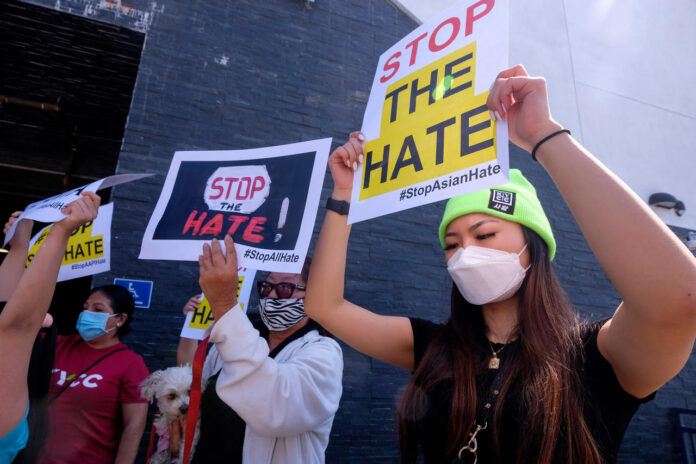By McKenzie Jackson, California Black Media
Californians who are Asian American or Pacific Islanders (AAPI) were the targets of an escalated number of hate crimes and hate incidents during the COVID-19 pandemic.
Many AAPI people, particularly the elderly, reported being too scared to leave their homes. Others experienced firsthand hateful incidents stemming from deep-rooted prejudices and stereotypes — such as verbal or physical assaults in public. Yet, too many of them were hesitant to voice their emotions, according to Yu Wang, an associate marriage and family therapist at the Asian Pacific Counseling and Treatment Center in Los Angeles.
“A space for healing is critically needed,” Wang said, also noting that some Asian cultures don’t put a heavy emphasis on sharing feelings and vulnerabilities. “It makes it difficult to talk about experiences related to racism. Also, many of us lack to the language to express emotions, which exacerbates feelings of isolation and fear.”
The Asian/Pacific Islanders (AAPI) Equity Alliance in collaboration with other Asian American community groups recently launched the Healing Our People through Engagement (HOPE) pilot program in Los Angeles County geared at healing racial trauma experienced by Asian American community members by providing healing spaces and reducing isolation. Based on the successes of the initiative, supporters and organizers believe the “culturally centered” program could become a model for other cities around the state. Ethnic Media Services hosted an hourlong Zoom press conference on the last day of May, which was AAPI Heritage Month, to allow HOPE program facilitators and allies the opportunity to provide details of the initiative to the media.
HOPE is a healing space for five distinct Asian American communities — Cambodian, Chinese, Filipino, Japanese, and Korean — created to make sense of their experiences with racism and recent surges in hate…
Read the full article here





